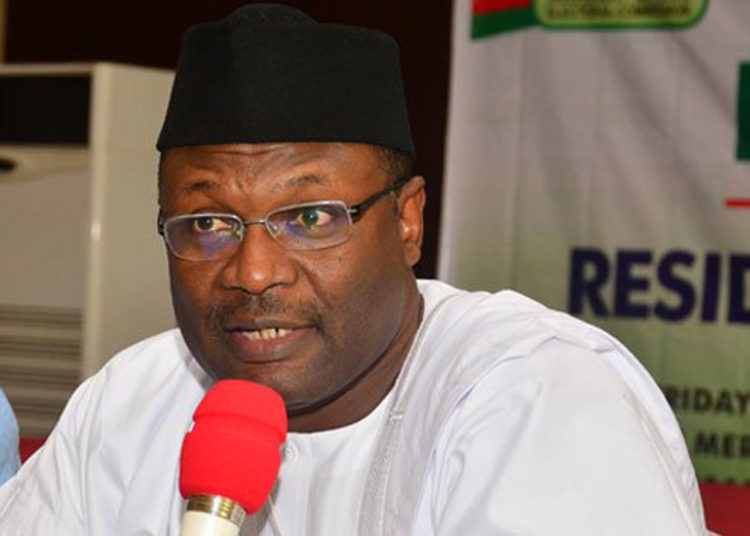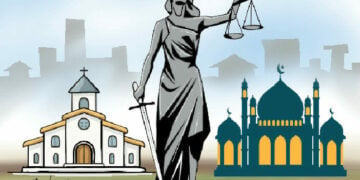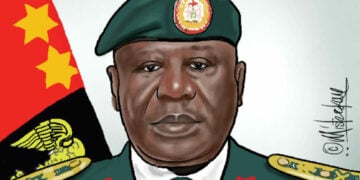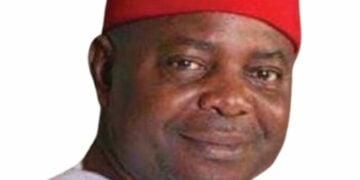Less than four months to the commencement of next year’s polls, it’s crystal clear that depending more on political parties that relying on candidates would amount to relying on the blind to lead the way to the Promised Land. Political parties, no doubt, form the basis of articulating the dreams and goals of a political group, but how far these parties succeed is hinged on the integrity and competence of candidates.
When the regime of Military President Ibrahim Badamasi Babangida created two political parties, the Social Democratic Party (SDP) and National Republican Convention (NRC), it provided a platform for “a little to the left and a little to the right” for the electorate. In view of the fact that parties in our climes could be turned into a commercial venture, the IBB-led military regime thought it wise to ensure that the parties were created without allowing fat cats to determine the direction of the pendulum.
In Nigeria, the poor are always favourably disposed to allowing the rich to take charge of any process that is aimed at creating a new nation based on rules. New consciousness of nations is realised, not on the strength of the powerful, but on the resolution of the masses. Citizens of a nation that are divided on national issues are constant sources of fretful tensions capable of destabilising the unity.
Our country missed the opportunity to grow its political culture based on ideology, following the collapse of the Third Republic that swept away Chief Ernest Shonekan-led Interim National Government (ING) that was swept away in a military putsch led by then Secretary of Defence, General Sani Abacha in 1993. The proliferation of parties since then has not helped matters. Even when no fewer than over 100 parties were approved by the Independent National Electoral Commission (INEC), they ended up being briefcase parties with no structures.
It seems more obvious that the motive behind Nigerian politicians setting up parties is not to represent and advance the rights of citizens for choice in a democracy, but to access funds provided by the electoral umpire ahead of any election year. Some of these parties, registered since 2019, have been unable to win the position of a councillor in any of the elections. It is in a bid to prepare the nation for the 2023 polls that the INEC Chairman, Professor Mahmood Yakubu, in 2020 announced the de-registration of 74 parties out of the then existing 92 parties.
The nation’s chief electoral umpire said the de-registration exercise followed poor performance of the affected parties in 2019, stressing that the affected 74 parties failed to meet the requirement of the Forth Alteration to the Constitutional Electoral Act 2010 (as amended).
“The commission was able to determine the performance of political parties in the elections. In addition, they were also assessed on the basis of their performance in the Area Council elections in the Federal Capital Territory (FCT), which coincided with the 2019 general election. It should be noted that the FCT is the only part of the country where INEC is empowered by the Constitution to conduct Local Government elections.
“The Commission has determined that eighteen (18) political parties have fulfilled the requirements for an existence based on Section 225A of the 1999 Constitution (as amended)”, the INEC boss said.
INEC’s de-registration of these parties is a clear indication that parties are mostly used to negotiate with those with deep pockets in a bid to advance pecuniary interest. Even with the existing 18 parties having fulfilled requirements as enshrined in the Section 225A of the 1999 Constitution (as amended), only three of them are visible at the national level, with the other 15 either confined to states or zones.
Unlike in developed nations, especially in the United States of America, where there is a clear difference in ideologies, both the leading parties, Democrats and Republicans, are united in defending the interests of the American State. Here in Nigeria, the parties’ manifestos seem to be mere photocopies of the same objectives. It is this absence of ideological leaning that makes it easier for fair-weather politicians to defect to other parties for relevance during polls.
Ahead of 2023, Nigeria is faced with the choice of electing a president for the three frontline parties. Our challenges as a nation can only be combated if we are able to walk the tight rope of doing away with the past practice of enthroning the party platform above candidates. The de-registration of 74 political parties has shown that parties are mere political platforms deployed to bamboozle the masses for electoral triumph. The need to reassess the competence of candidates must be seen as irreversible.
More than anything, we must interrogate the antecedents of the candidates and seek to rationalise the basis of their past performances in order to convince ourselves of their performance status as potential presidents. Much as age is decisive in determining how far a leader can survive the rigors of leadership, we must also note that older men and women have exceptionally done well and turned new pages for their nations.
The character of a leader, especially his integrity, must be subjected to scrutiny to establish his suitability. A leader that once played in the mud of corruption must not be accepted, knowing that an itchy finger can only be restrained momentarily. A politician whose past never brought anything good for the people can never be trusted to turn a new leaf and bring hope to the Nigerian masses that are on the brink of despondency and despair.
Candidates’ ability to rally competent aides and patriots from all parts of the country must be seen as a strong factor of leadership. The sterling examples of former President Olusegun Obasanjo in his second coming and Gen IBB should serve as templates in rallying competent hands across ethnic and religious divides. Working with other critical stakeholders to strengthen institutions and enthrone rule of law must not be allowed to escape the list of what it takes to be Nigeria’s next president.
Candidates’ ability to resonate with issues confronting citizens should form the fulcrum of a national vision to rescue the country from monsters of insecurity and underdevelopment. Getting our country out of the woods should be a constant reminder to whoever emerges as the next president in 2023. We have tarried for so long on this threshold of melancholy. Democracy holds the key for a prosperous future, but those mandated with driving the wheels of democracy are concerned with acquiring wealth and neglecting the welfare of citizens.
Next year beckons with hope and new dreams. We can’t continue with the vision of surrendering our future to parties often hijacked by mostly unpatriotic politicians versed in stomach infrastructure. Nigeria needs visionary leaders equipped with technology to confront contemporary challenges haranguing our people.
If the basis of government is to provide for the welfare of the governed, then, political leaders must align their dreams to serve the greater majority. Present realities of our nation make it imperative for national leadership to rise up from its slumber and secure lives of citizens being massacred by mindless murderers and other members of criminal groups.
To move our democracy that has been festered by corruption and insecurity, the masses must be outraged by these evils that stalk our land. Incessant decimations of our communities and lackluster leadership throwing our nation into an ocean of crippling fright must end. The electorate must eschew ethnic and religious sentiments to seize power from politicians who have taken advantage of our fault lines to further divide us.
Having experienced failures by parties that only provided launching pads for unpatriotic leaders to stifle the development of our nation, citizens desirous of a new dawn must ensure that in 2023, the focus must be on candidates, not parties. What can bring the difference this time around is not on parties but on candidates who possess the competence to push for the common goal of providing for the welfare of the overall majority.
Salvaging what is left of our nation is a collective responsibility. When followership asserts its rights for the good of the country, leadership has no option than to succumb. No party is evil; but members of the party may turn out the albatross for such a party. To escape the horror of a party, let us focus on candidates that can give our nation a new lease of life.





